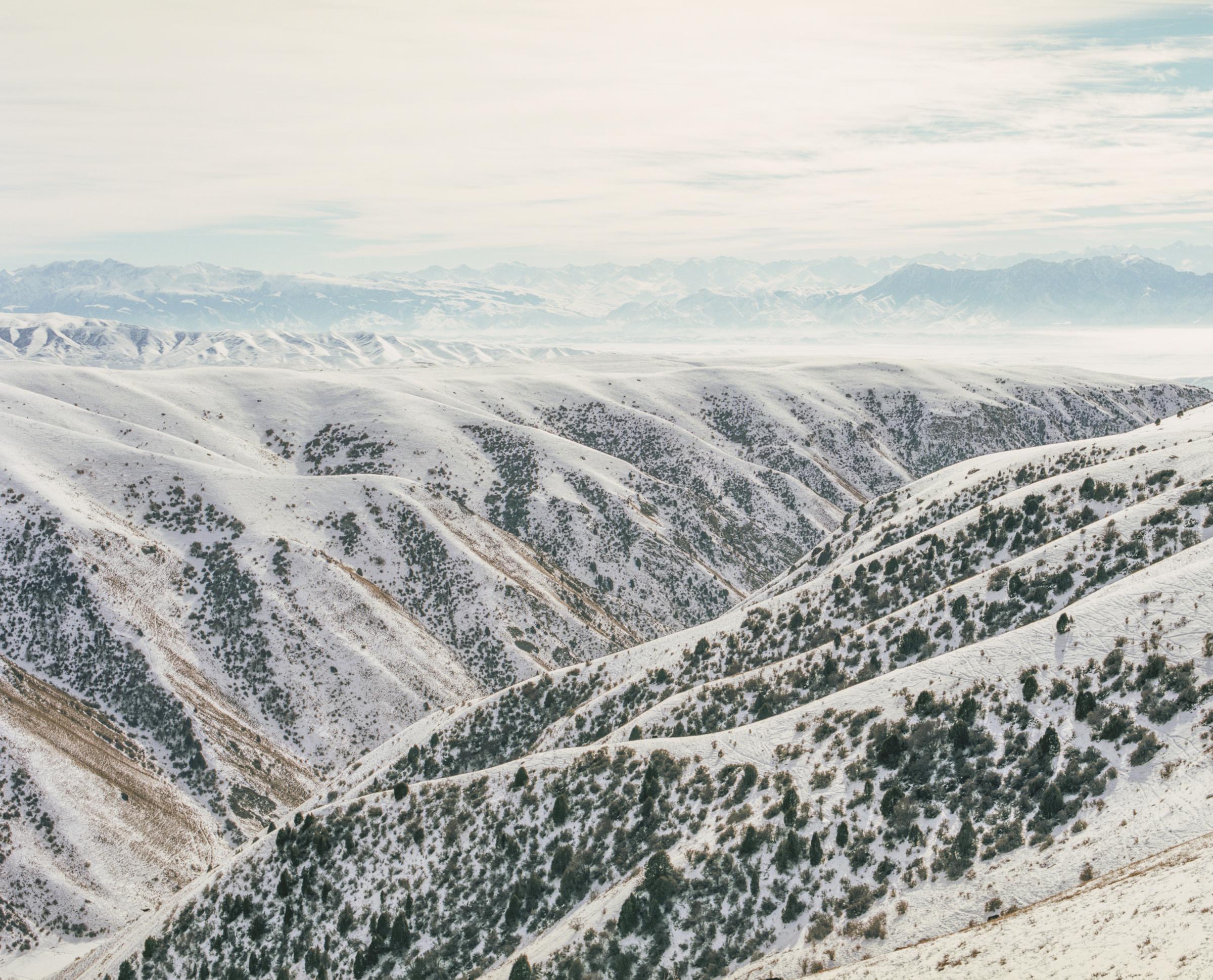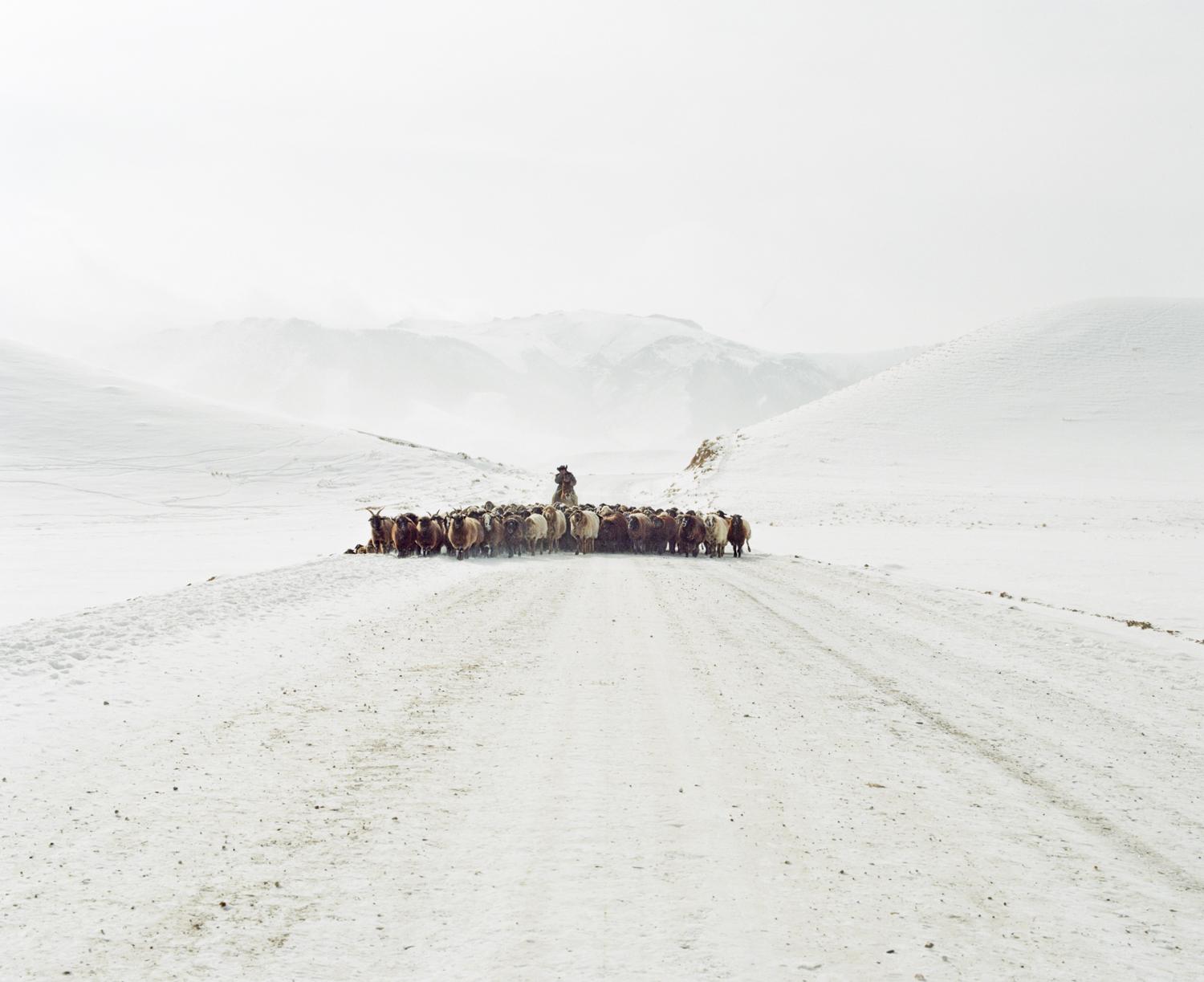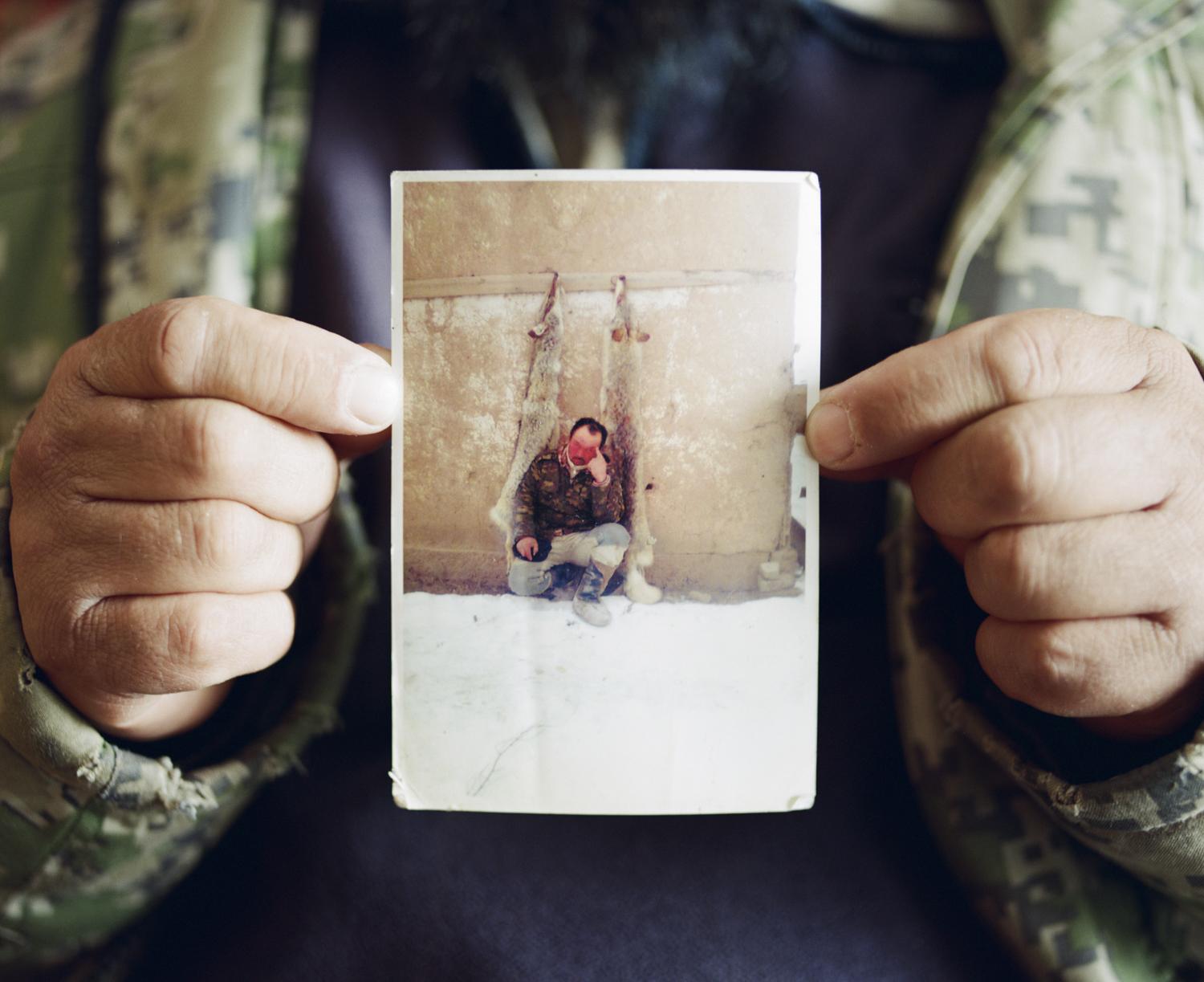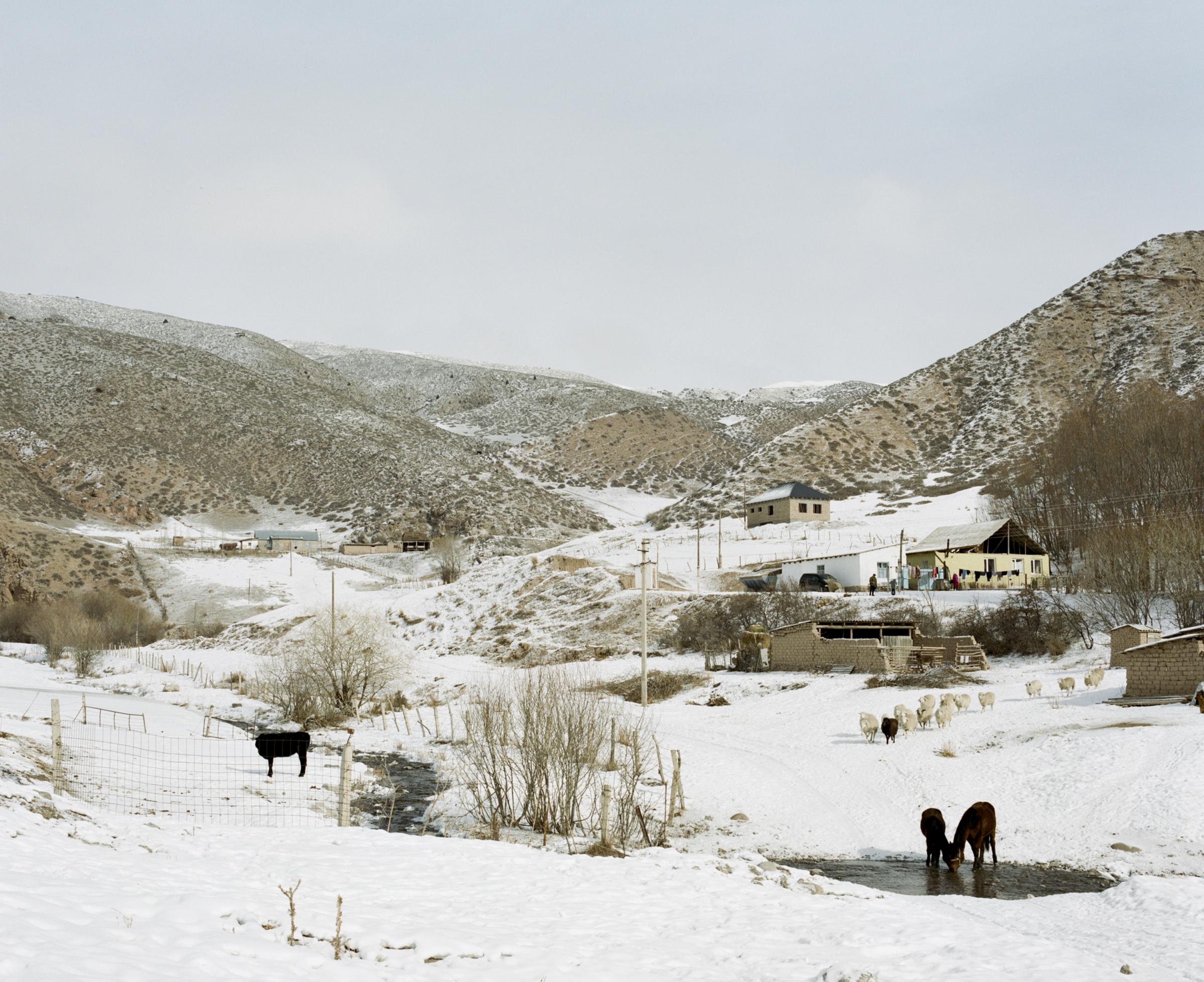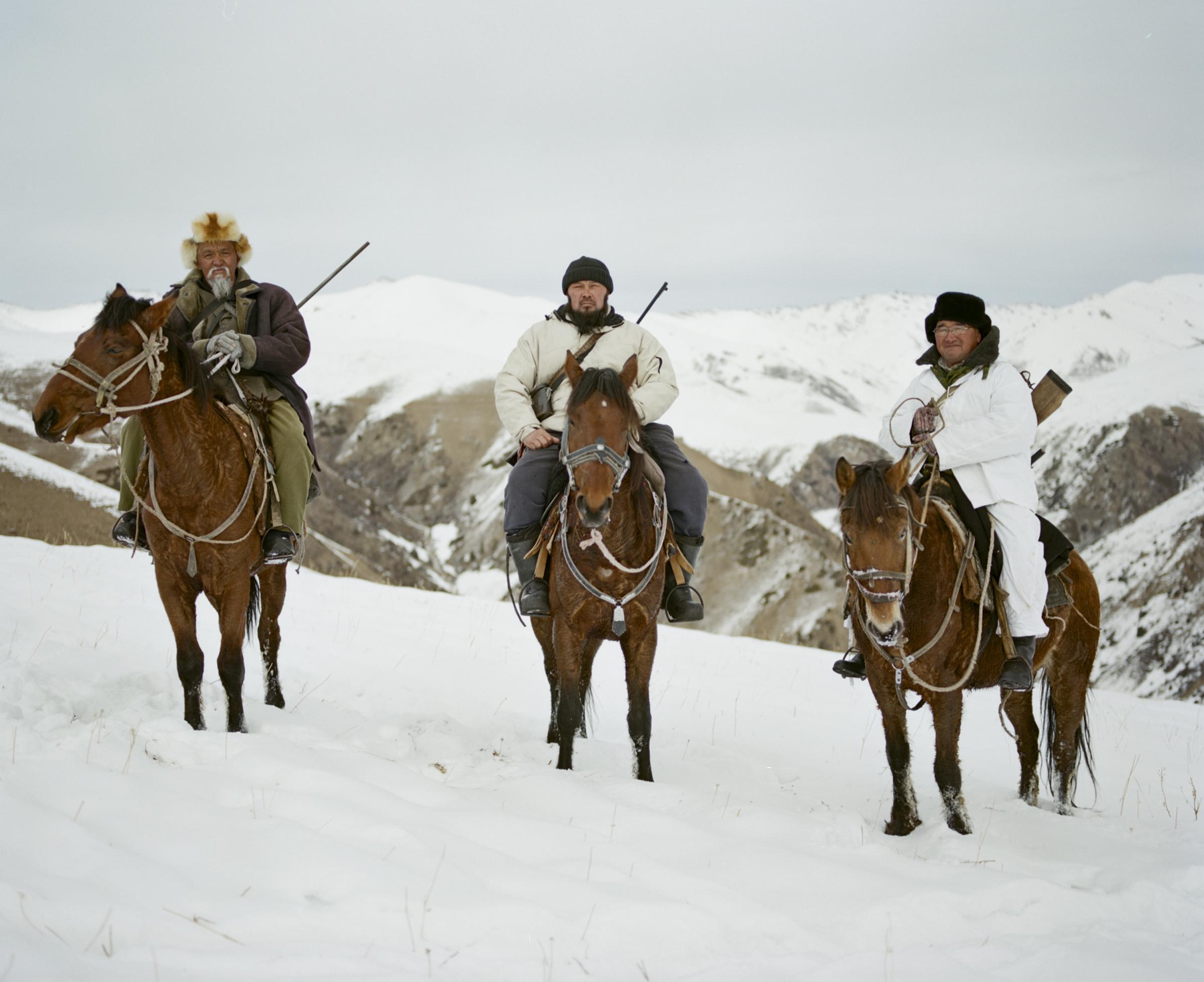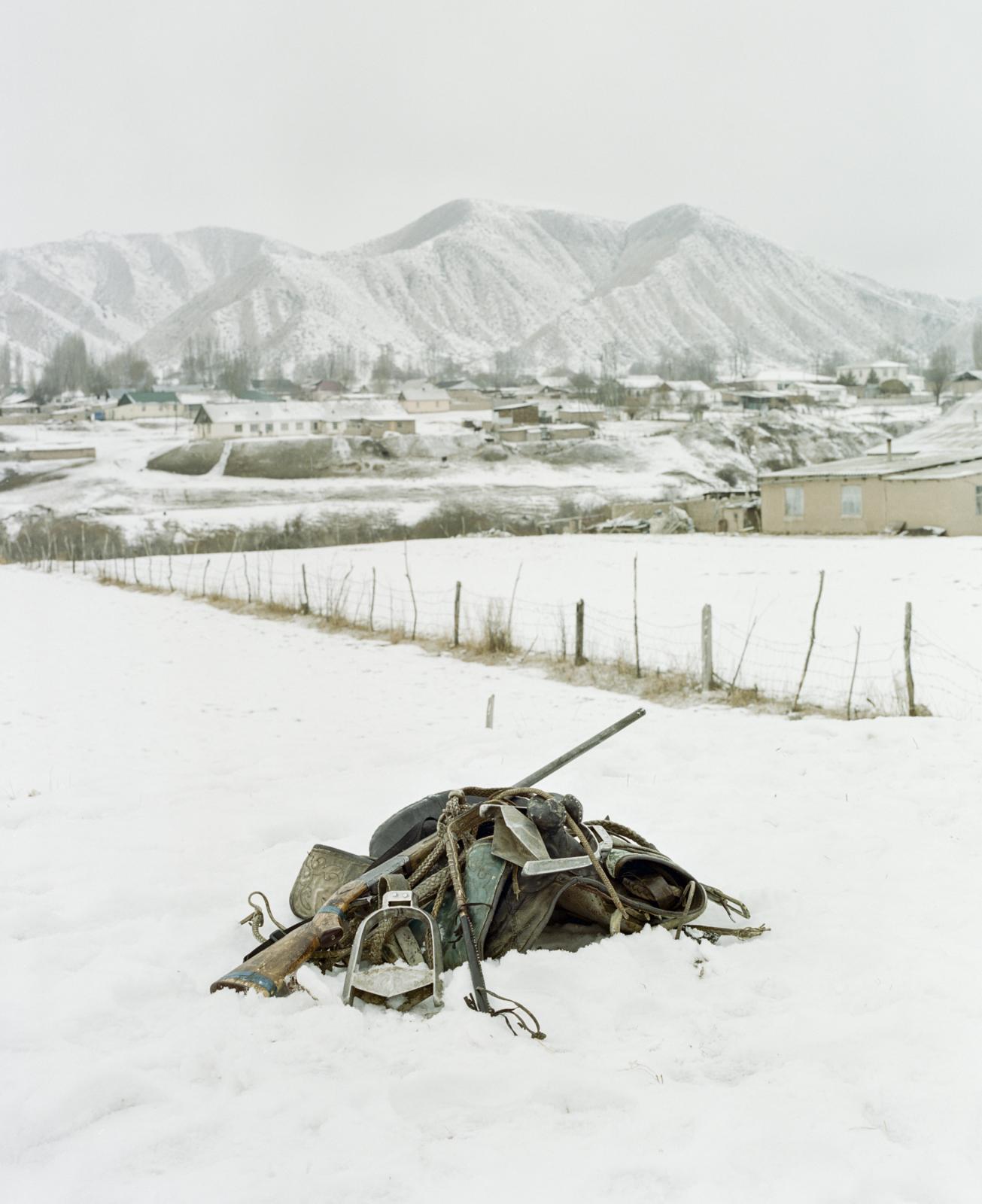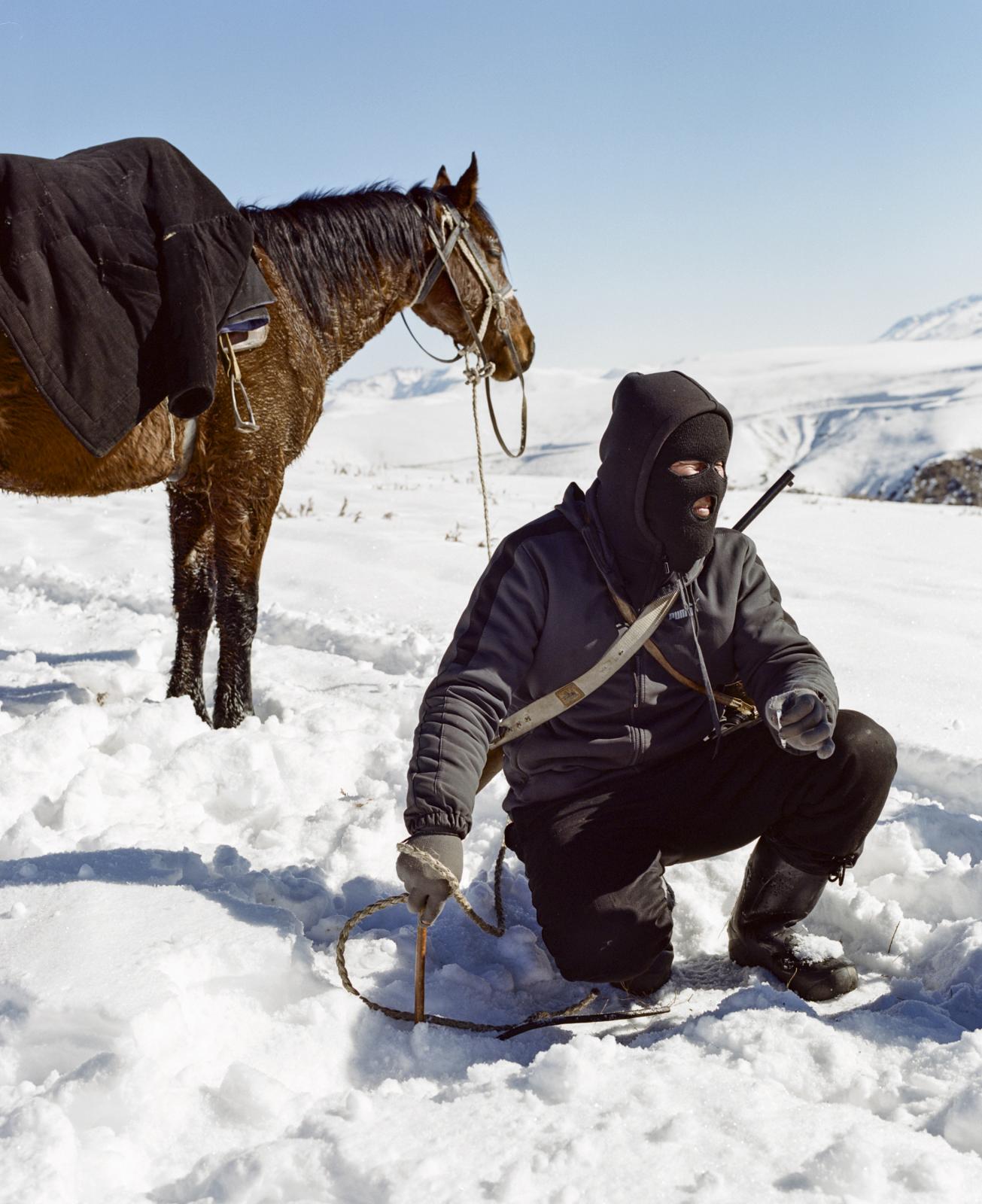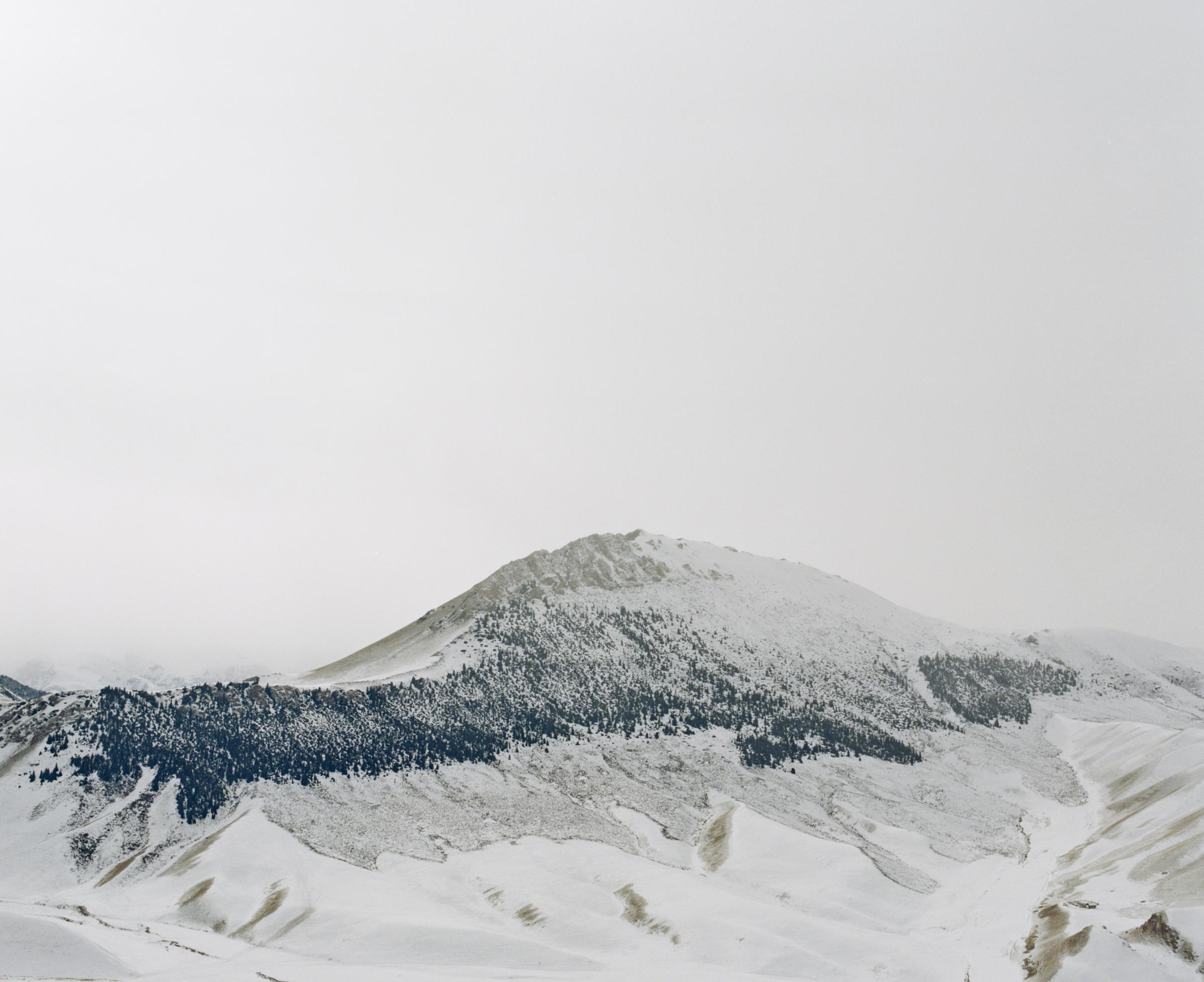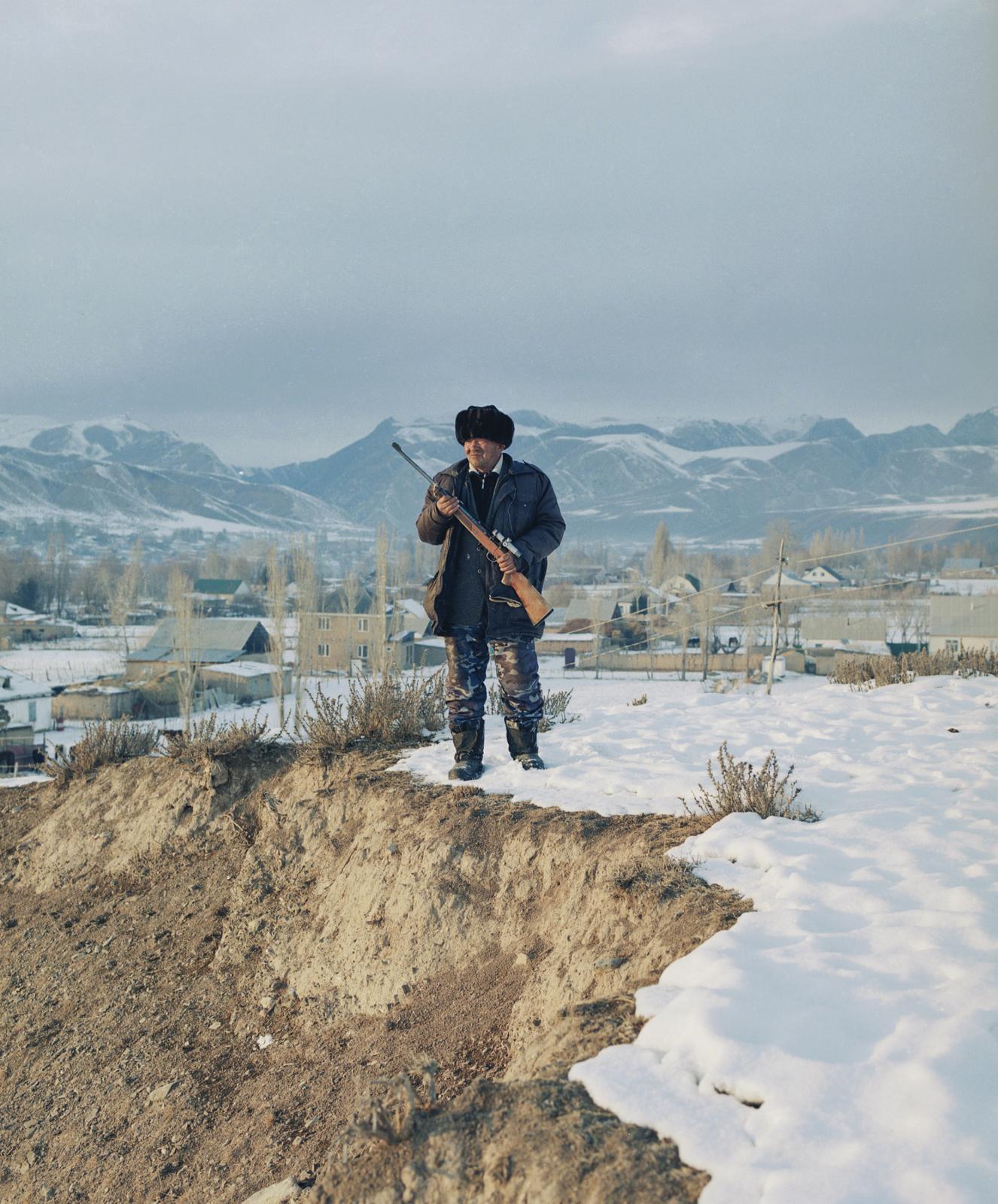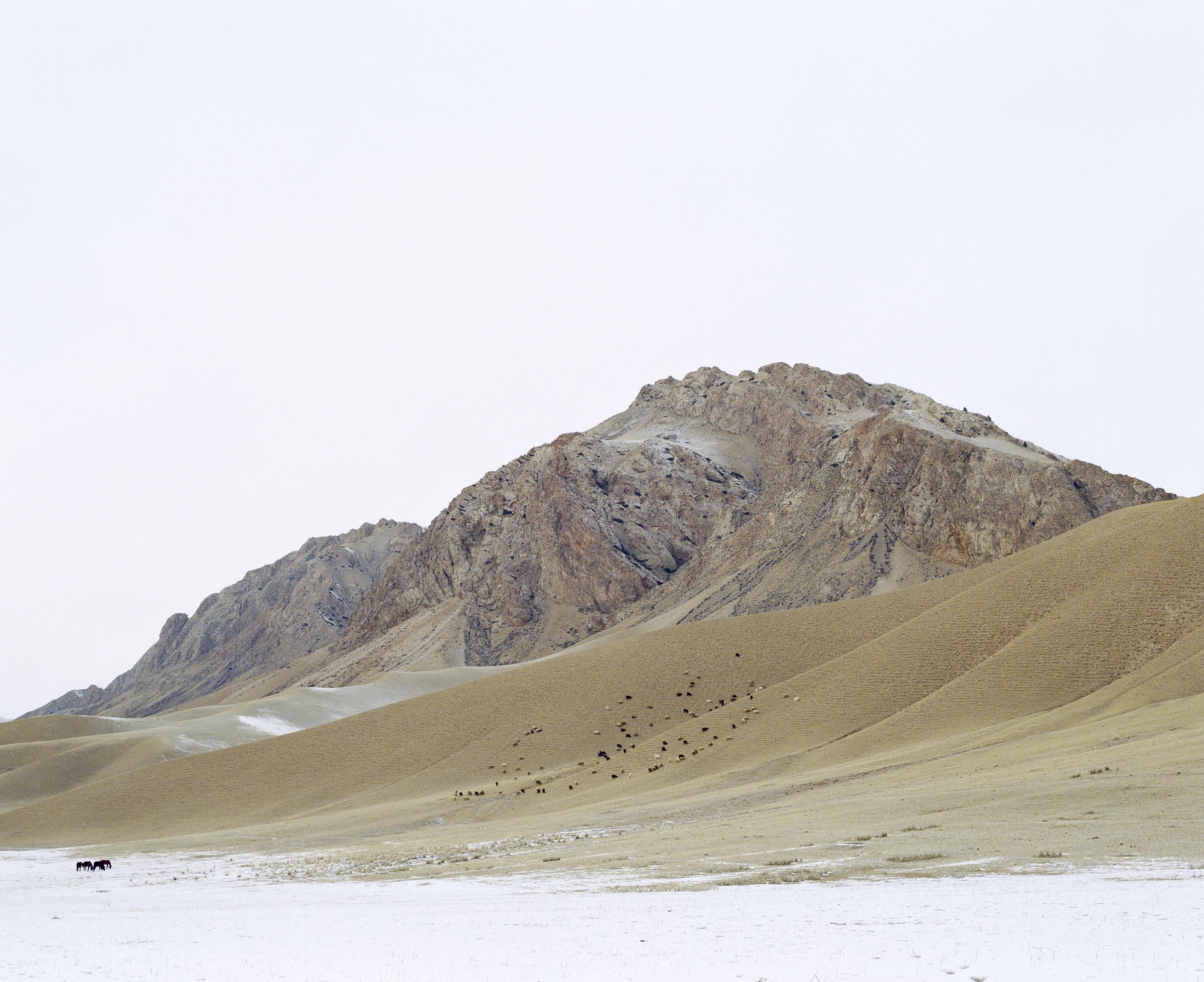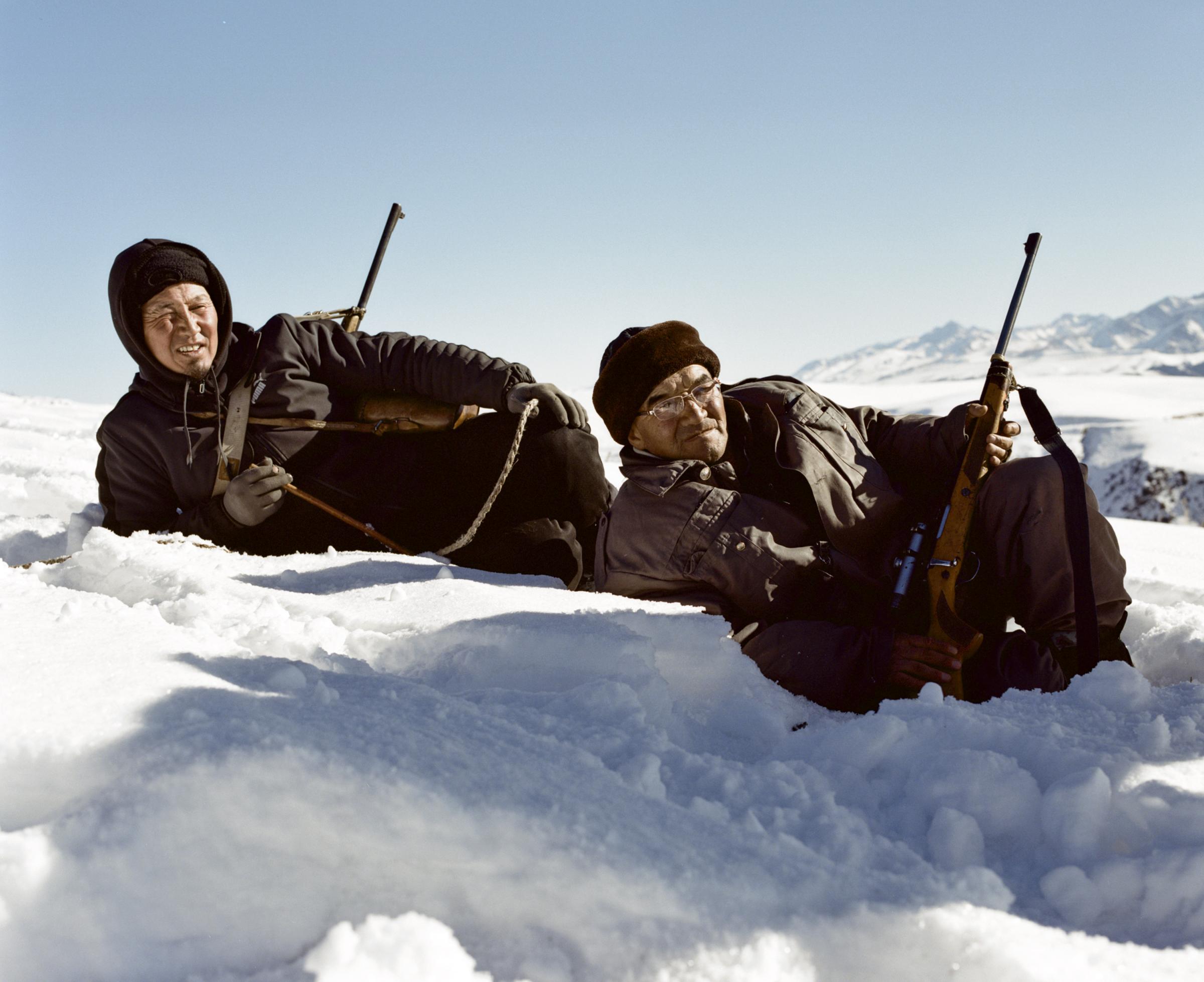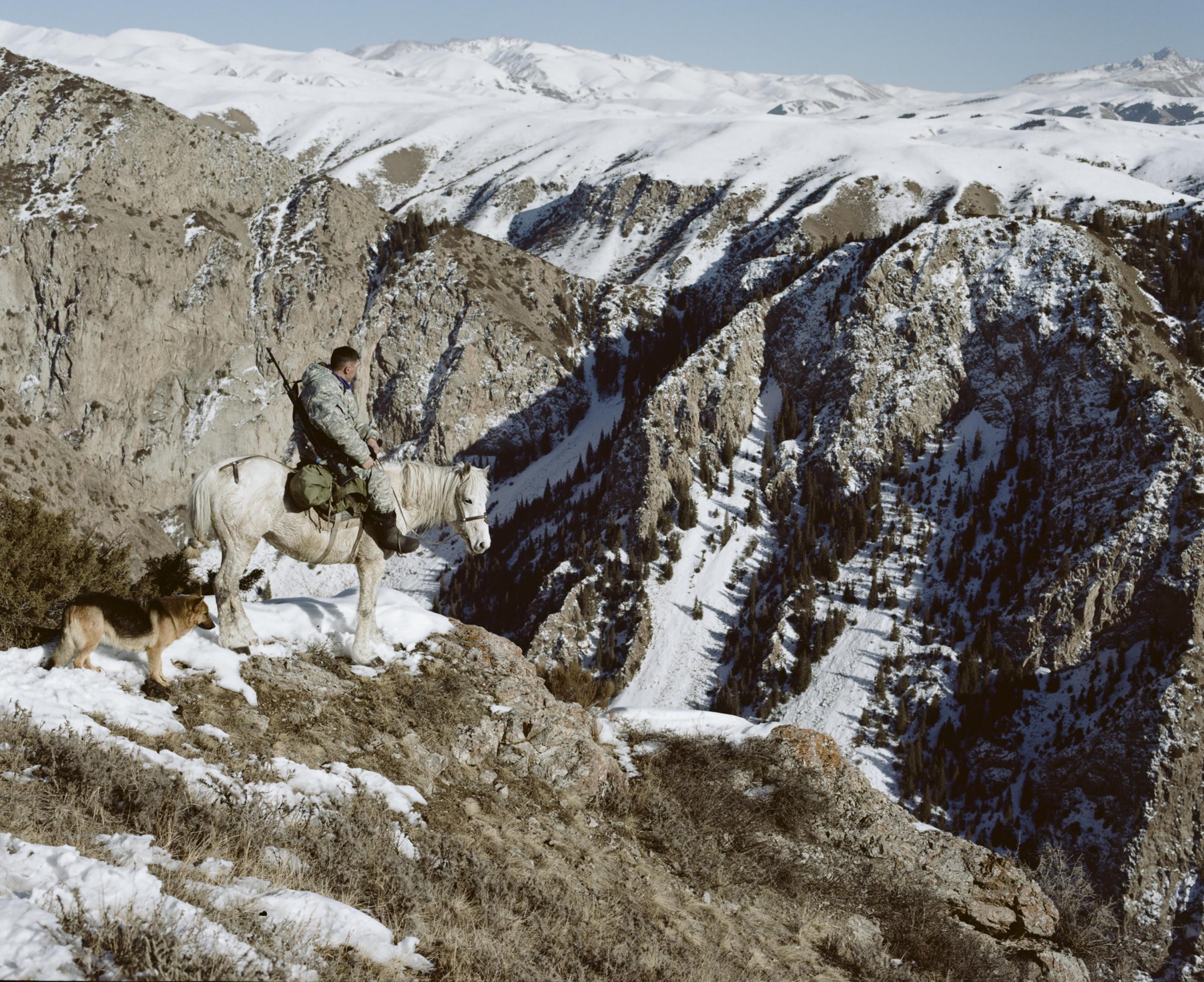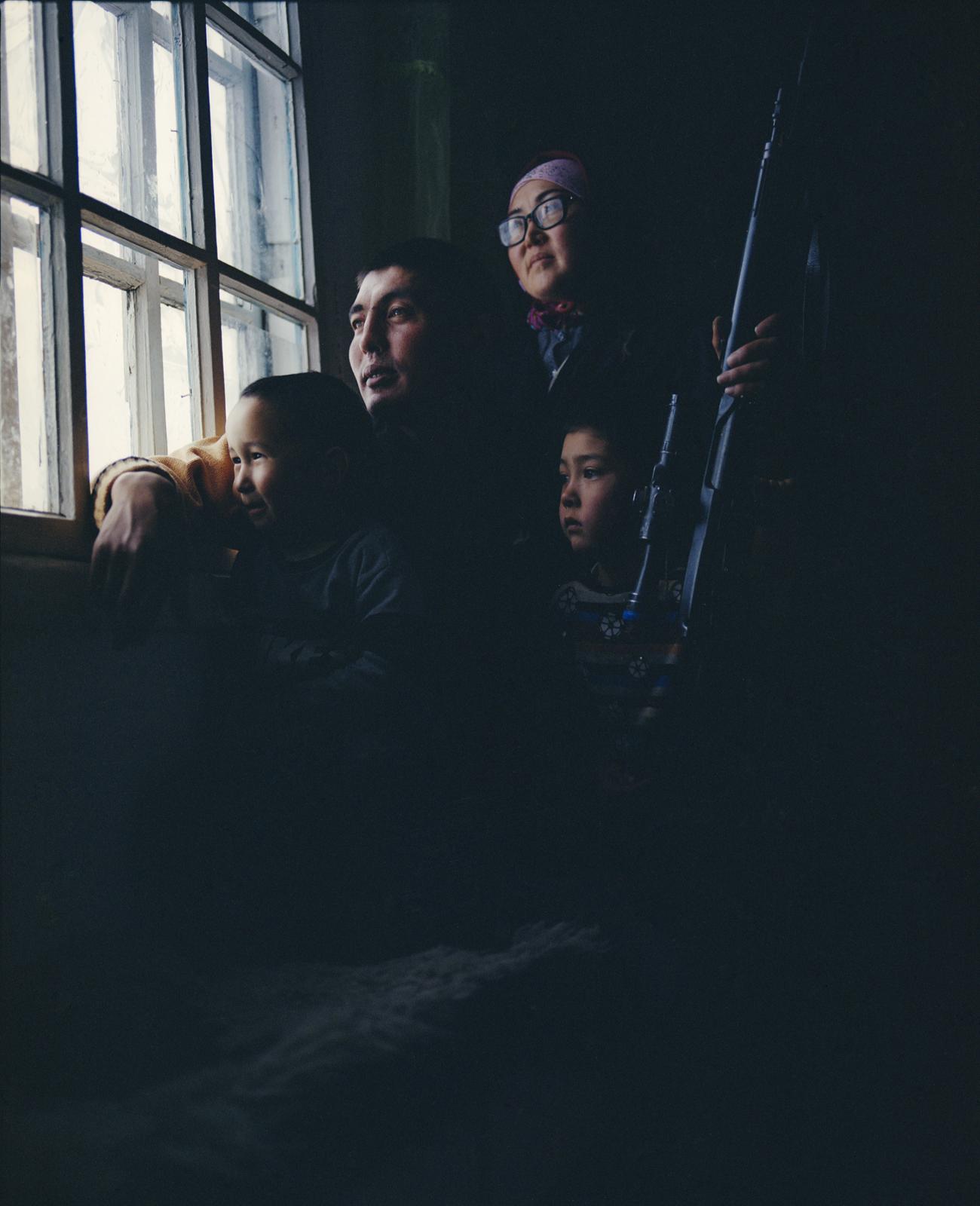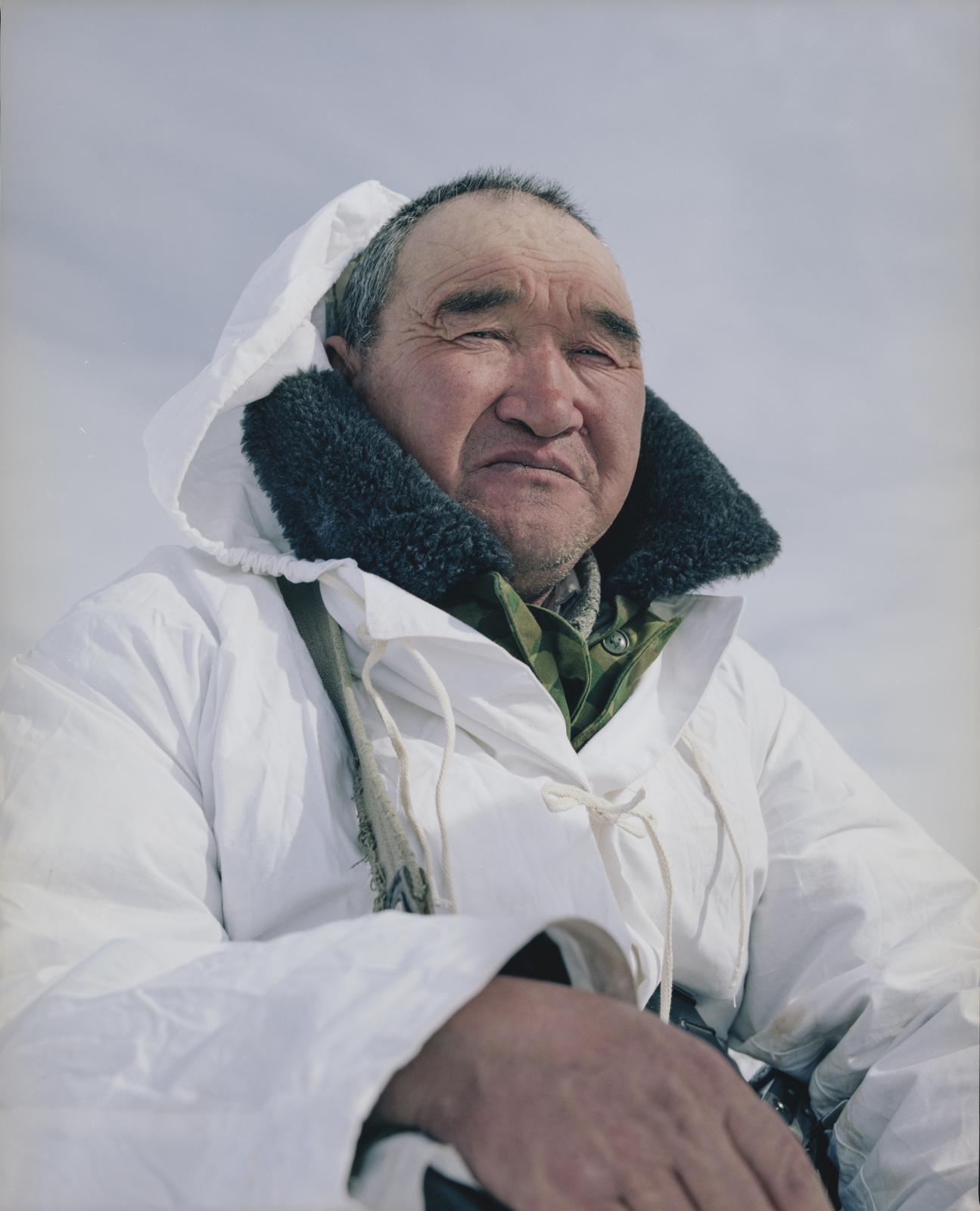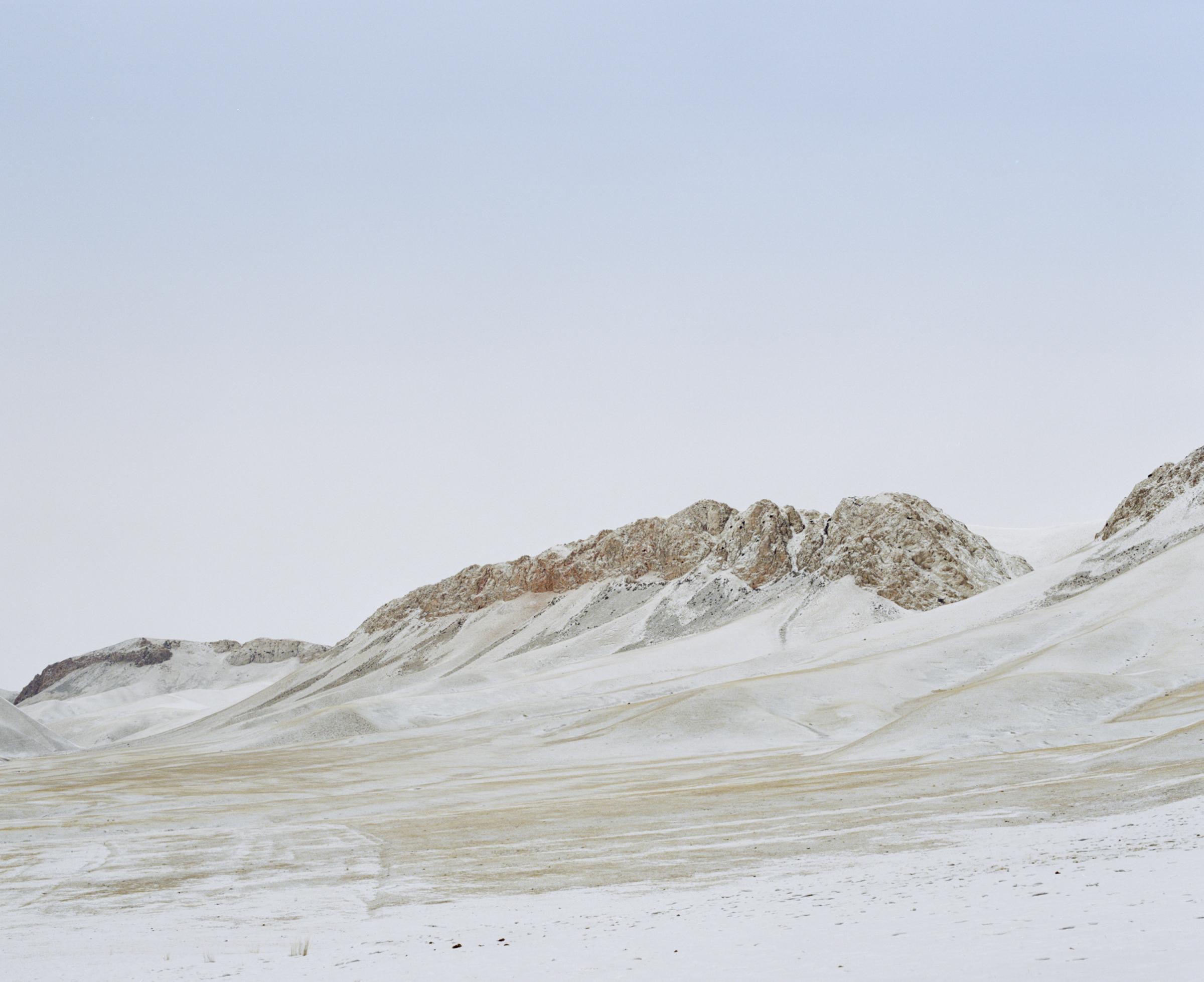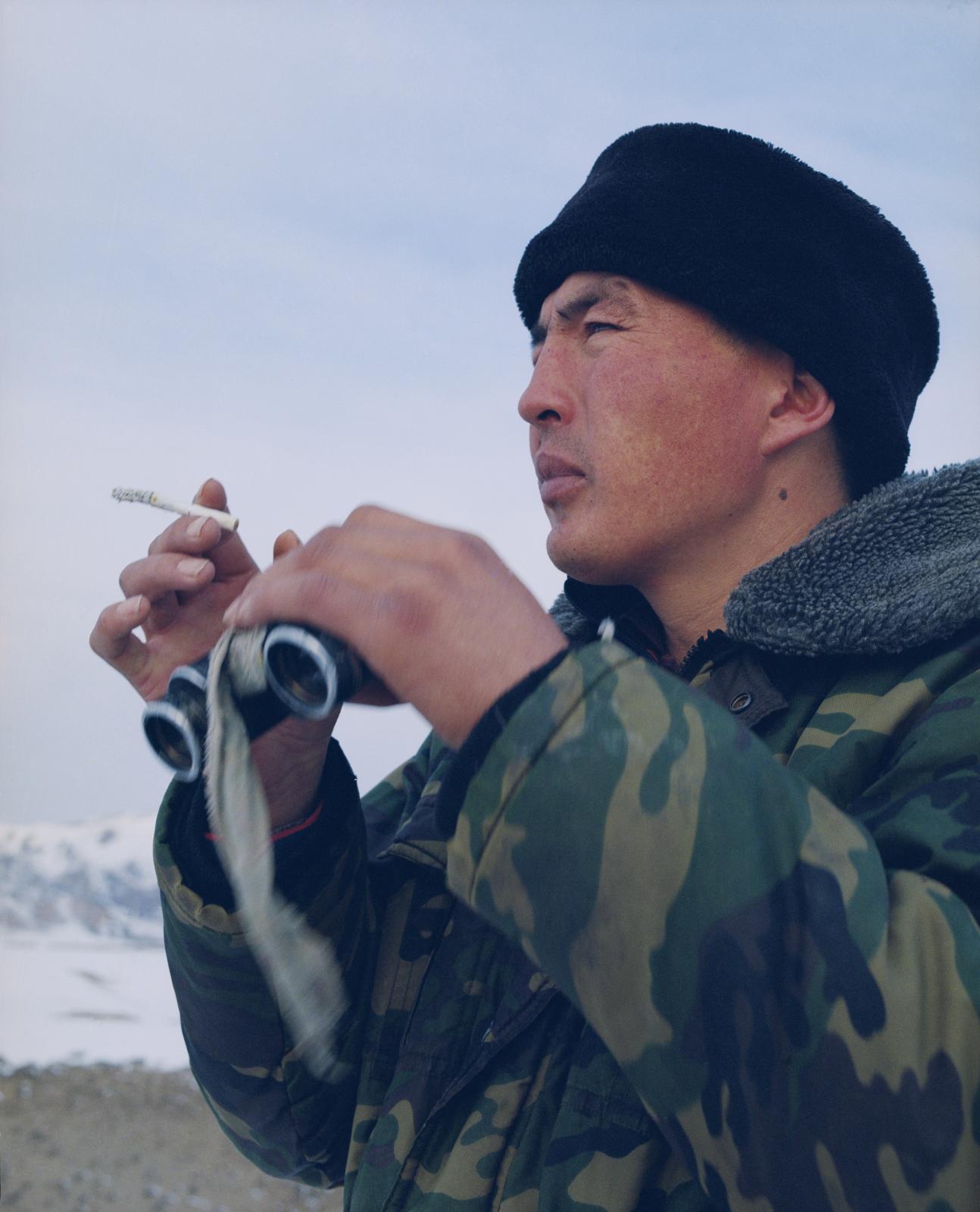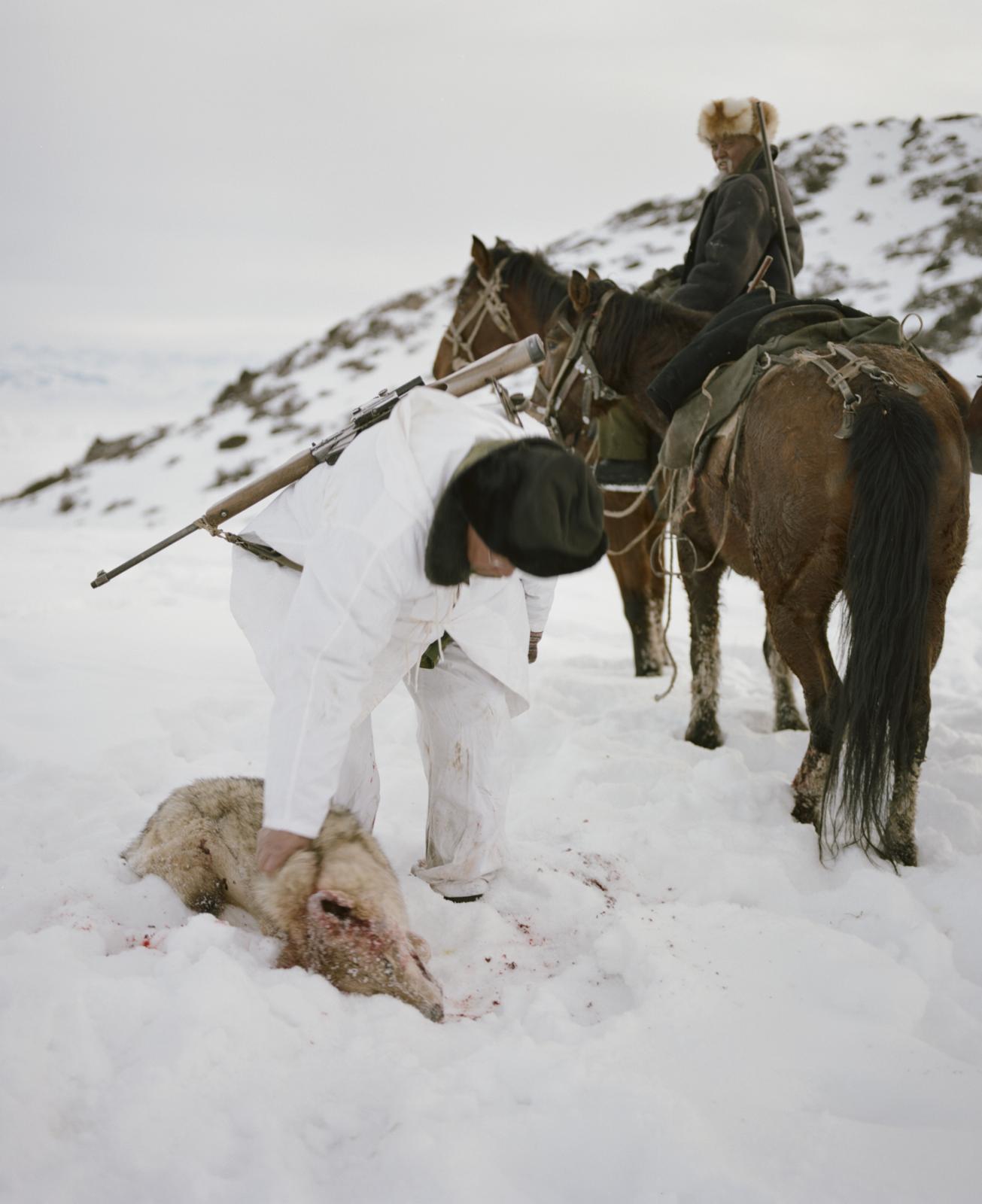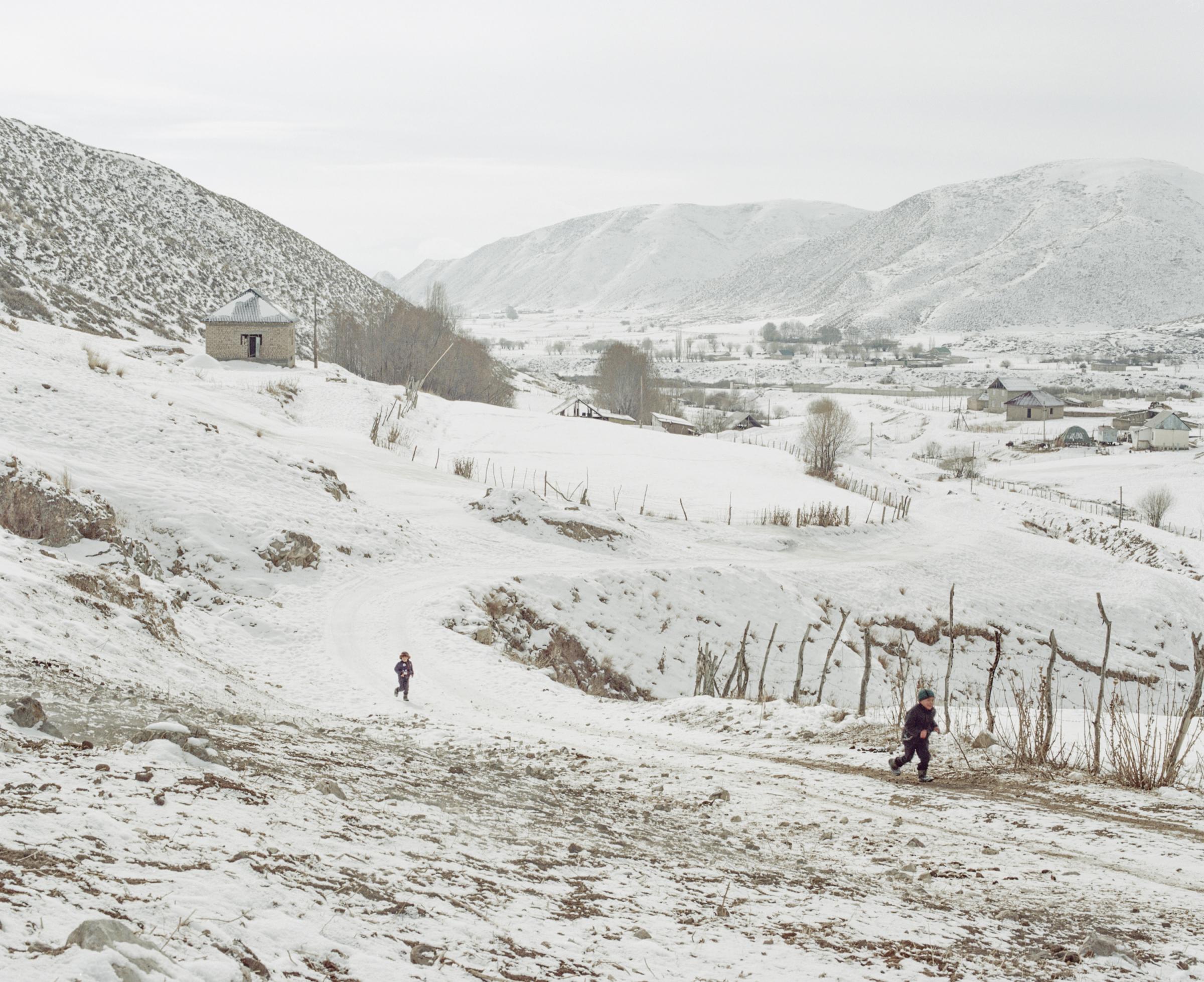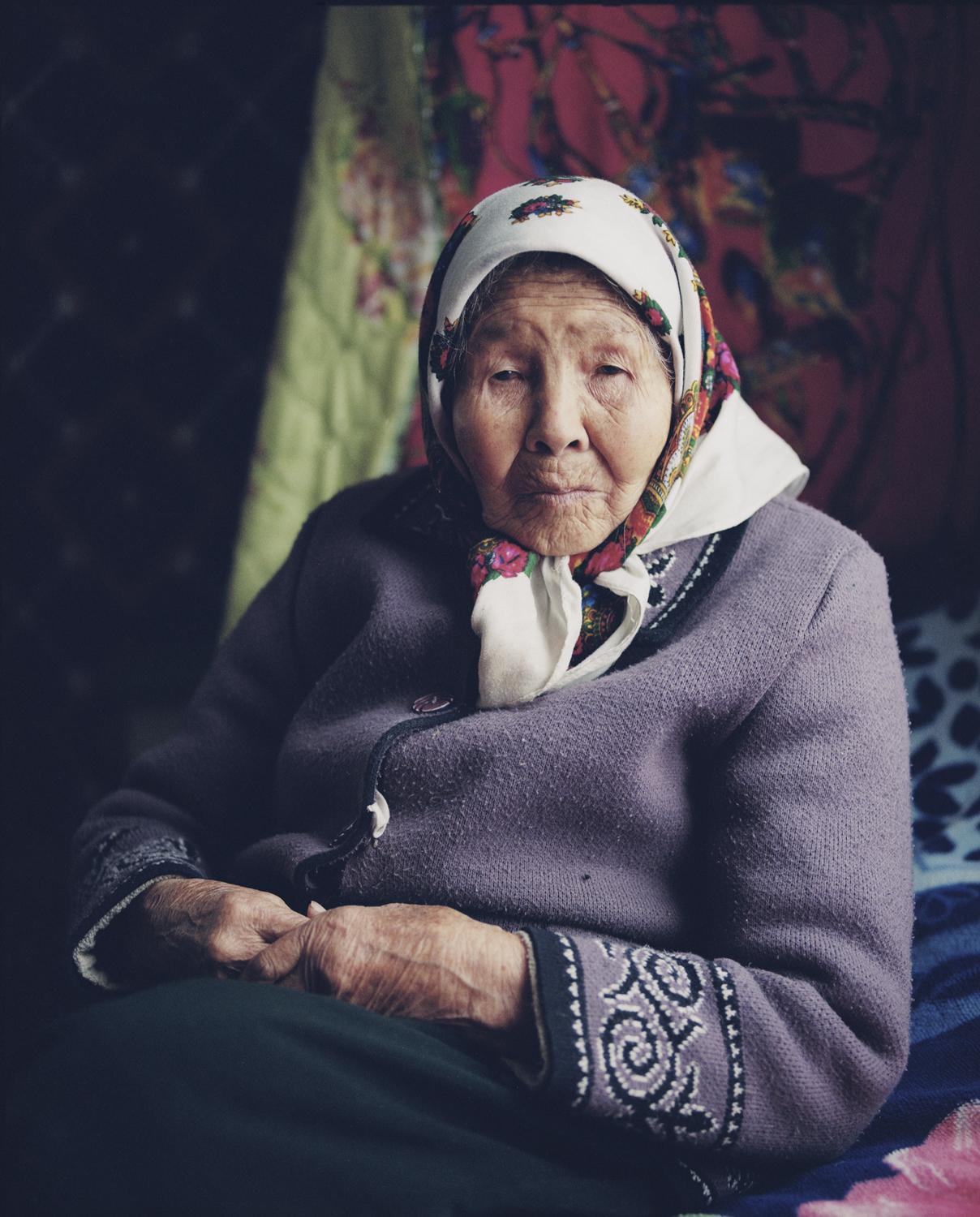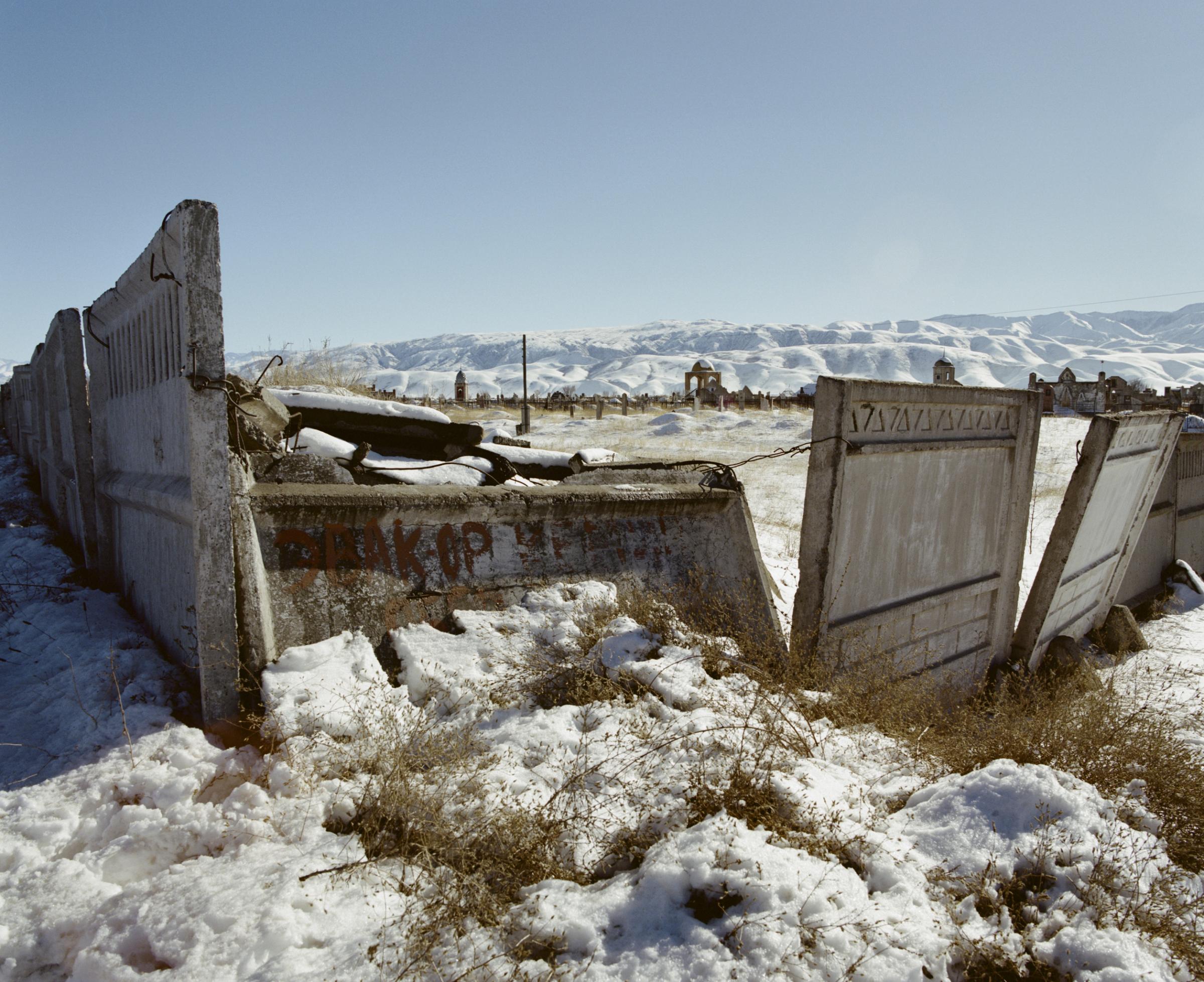The Running of the Wolves
It was a sea of fur hats, strong handshakes and 'salaam alaikums'. Nearly every man of the village was there to receive me and my fixer. After a quick slew of greetings Nadi led me into the front pasture of the house. There on the ground were two wolves, one black and one white. They were only maybe 40 kg each, but their size didn't matter, because up in these mountains there were a lot of them. It was surreal to think that only a few days ago I was in my mid-manhattan apartment. Now I was in Ottuk, a small Kyrgyz village with a massive wolf problem. Ottuk has a population of around 850 and since the late 80’s has been combating an aggressive wolf population that took 27 horses, 23 yak and 50 sheep from the village last year alone. The wolves descend into the pastures, drink at the same water sources as the livestock and do their hunting from there. In plain economic terms: the village of Ottuk makes roughly $118,000 USD every year from their livestock trade. The wolves eat almost half of that money, costing them around $47,600 per year. In a village where everybody is a subsistence shepherd, that is a direct 39% loss to every household’s yearly income. A small group of hunters had been fighting tooth and nail to stop bleeding these losses and I was there to join them.
Nadi was my main contact in Ottuk. With tree trunk legs and a barrel chest he was exactly as I had imagined a Kyrgyz wolf hunter to look like. "We shot them yesterday morning.” said Nadi. "Hopefully we can get a few more while you're here." I kneeled down to feel their fur. It was coarse and full of ice. Little did I know, that's exactly how my beard would feel in just a few days. "Let's have tea now" a husky voice beckoned from the darkness. In the common room of the small warm house I sat crossed legged on the floor with my fixer and the 4 eldest men of the group. In front of us was hot tea and several circular loafs of Лепёшки (Lepyoshki), the national bread of Kyrgyzstan. Everyone else in the room remained standing and my eyes instinctively went to the eldest man at the table. He began to speak and the room went silent. "Welcome, please feel at home. Ask me anything you want." His name was Ishimbek, and at 59 years old he was one of the eldest among the hunters. After expressing my gratitude for our reception I asked him about the history of the wolf problem. ‘It all began in 1987. The Soviet government introduced Russian Wolves to help clean up dead livestock. They were bigger and more aggressive. They mated with our wolves and the new hybrid produces litters of six to seven pups. Our native wolves produced only half of that. Within three years it was a problem. The wolves were eating up to a hundred horses a year and countless other livestock. We wanted to hunt the wolves like our grandfathers had but they were protected by the government. When the USSR collapsed we were finally able to do something about it and in 92’ we organized the men in the village and started hunting them." "How do you do it? What's your technique?" I asked. "Basically we find tracks and surround the wolf from higher ground. But you'll see for yourself. The wolves are very clever and it's a lot of work.”
The following morning I woke up to the familiar smell of a wood burning stove. I struggled out of the thirty-odd pounds of felt blankets that were layered on top of me and shuffled into the kitchen. As I slowly came to with the aid of strong black tea, I took notice of the antique television across from us. An old grainy movie was playing and men in wooly sheep skin coats and peaked hats were tromping through the mountains hunting Marco Polo sheep with muskets. Just then my fixer Ruslan walked in, “Oh! Kojojosh!”, he exclaimed. “This is old soviet movie about great hunter. He is legendary.” Ruslan went on to explain to me the premise of the movie: the titular character Kojojosh is an extremely talented hunter. He kills many Marco Polo sheep and sells their hides and horns. The elders tell him that he is killing too many, but Kojojosh, ever prideful, doesn’t listen. One day he sets out to hunt a sacred deer known as Kaiberen. When he takes his shot at the Kaiberen he accidentally shoots his own son. Filled with remorse, he rushes back to his village but a rock slide blocks his way down. Poor Kojojosh freezes to death up in the mountains. The moral of the story is straight forward: Never hunt more than is needed. “This is good sign, brother. This movie about great hunter is on TV and we are here for project about hunting!” Ruslan exclaimed. “But he died!” I laughed out in reply. Over the course of my stay in Ottuk I would think about this story frequently. Who was over hunting? The wolves or the men of Ottuk?
The next day I was on a stalky pony approaching an icy summit with the rising sun in front of me. Nadi and two other hunters, Ruslan and Jamalbek, dismounted and began scoping the tree-covered valley below us with antique soviet binoculars. "See these pockets of trees?” said Jamalbek "This is where they like to hangout." As we moved on some 12,000 feet high I felt like I was in a land meant only for Gods. Legend has it that when God was distributing lands to all the various peoples of the world, the Kyrgyz were sleeping and left homeless. Upon realizing this oversight, God took pity on the Kyrgyz and gave them the most beautiful land in all creation. In the sublime majesty of these mountains this legend seemed to ring true; it was heartbreakingly beautiful. As we road on through undulating passes and towering peaks more hunters joined us out of nowhere. All of them were dressed and outfitted in similar fashion: vintage soviet camouflage with banged up SVD’s or homemade break-over rifles literally held together by baling wire. These weapons looked ancient and extremely inaccurate, but somehow, these men were able to shoot wolves with these rifles while they were running at distances of around 200 meters. What made this marksmanship not just impressive but down right unbelievable was that some of these guns were smooth bored. Due to strict government control over firearms, it is quite difficult (I.e. expensive) to get the permission for a rifle. The police and military drill out the rifling and sell their decommissioned firearms and these are the easiest weapons to attain. We rode on for hours across ice covered slopes with no trails. Surrounded by sheer drop offs, a misstep could mean a grizzly death after a several hundred meter fall. We stopped several more times to scope more valleys while drinking bozo, a slightly sour drink made of fermented cereals touted by the Kyrgyz as antifreeze for the body. As I crouched in the snow with the other hunters, Ishimbek asked me, “What do you think? Is it as hard as deer hunting?" I laughed and told him that I usually just sit in a tree with my bow when I hunt, so I'd say this is quite a bit harder." He grinned knowingly and my fixer said something about how warm it was that afternoon. This gave me chills since my water had frozen as I was pouring it into my coffee mug that morning. Before sunset we returned to the village. I was terribly sore from the nine hours of riding and was lucky to have some days of rest ahead of me.
Over the next two days I got to know the hunters better. All together there were six of them: Ishimbek, Ishimbek’s brother Adibai, Jamalbek, Ruslan, Nadi and Nuruzbai. All of these men started hunting wolves at different times in their lives and all of them out of necessity. Ishimbek started hunting in 1977 before the Russian breed was introduced and wolf hunting was outlawed.
“In the days of the Soviet Union there were collective farms and state farms. My older brother was a shepherd in one of these collective farms. I helped him graze the cattle of the collective farm and guard the cattle from the attacks of wolves. That's when I first picked up a rifle. I was fifteen years old at the time. Every year, wolves ate a large number of livestock, even today in our village, wolves eat about 50 heads of livestock.”Ishimbek’s account of the persistence of the wolf problem was given significant weight when I talked to Ruslan, who at thirty-five years old was by far the youngest of the hunters.
After this discussion I understood that the wolf problem in Ottuk was a multigenerational struggle and widespread across the entire country. It begged the question: Will there be enough hunters in the next generation to protect the village’s livelihood? On my way to Nadi’s house I had this question at the front of my mind.“In the beginning, I was not interested in hunting, I was more interested in technology. My father had 50 horses, 40 of them were eaten by wolves. We had one hunter in our village. I went to him and asked him to shoot these wolves. Once I went hunting with him I began to hunt wolves myself. Now I go to other regions of the country to shoot wolves. People usually don’t give me money. Instead of money, they give five rams or one horse as a reward. They come once or twice a year asking me to shoot wolves.”
Nadi was forty-five years old and commanded a respect among the other men for reasons I did not yet know. He had four sons, the youngest two being twins and all of them looking like clones of their father. "Will they hunt too?" I asked. "Only if they show interest. The oldest one seems interested but i won't force him into it. My grandfather was a great hunter, I'm a great hunter, maybe my sons will be one day too. But I can't say for sure. As of now I don't know of any younger people starting to hunt." This statement was oft repeated by the hunters. Jamalbek laughed when I asked about the next generation of hunters. "They come once, see how hard it is and never go again." He knew just like all the other hunters that it would be a serious problem if none of the younger generation took up the initiative. Although things had indeed gotten better since the late nineties, wolves were still eating up to fifty and sometimes one-hundred horses a year. Now the village had more cattle and the wolves were less brazen but back in the 90’s people were getting attacked so frequently that the villagers were afraid to use their own outhouses at night.
The next day I drove with the hunters through a snow storm to see a kok boru match (the national sport of Kyrgyzstan). Two teams of four men on horseback fight for possession of a goat carcass that they must fling into a hole for points; rarely does it not involve serious injury. Unfortunately...the game was canceled. But during that drive I learned that Nadi had been the village champion. This explained the heir of respect he commanded among the hunters. Several days later I would see his horsemanship skills for myself as he and his horse would tread on the precipice of death up in the mountains.
When the storm had passed, two feet of fresh snow laid on the ground. These were perfect conditions as Nadi explained, ‘With the fresh snow we can see all the tracks very clearly and they last longer. Also, the wolves can’t run as fast. Sometimes they’ll even come down into the pastures to eat cattle and they’ll be too full and lazy to trudge back up into the mountains in the snow.’ The following morning I stepped outside into a pitch black wall of bone chilling cold. The moisture in my beard froze immediately and each breath formed icicles in my nostrils. I joined the hunters on the outskirts of the village before sunrise. We mounted up and rode for an hour into the howling wind. It was about -20 but the wind was coming dead on at a good 15 mph. All the hunters were going out today and they were filled with optimism. ‘Brother, you’re gonna see a wolf get shot today. God willing of course’, exclaimed Nadi.
As we made our approach to the summits we picked up a fresh wolf trail. With a feeling of urgency we all took up a gallop to gain on the wolf. I was less than two meters behind Nadi galloping at a decent clip that seemed much too fast given the terrain and the 200 meter drop to our immediate right, but this is how the hunters traveled. Suddenly Nadi's horse stepped heavily on an invisible patch of ice. Her legs splaying out and hooves skidding towards the edge of the drop off, I immediately swerved around him on the uphill side and jerked my horse to a stop. There was nothing I could do but watch. His horse began sliding towards the edge of the precipice and I was sure he would go over. In a flash of nimbleness, Nadi swung his leg over his saddle to stand uphill from his sliding pony but his other foot caught in his stirrup and he was now being pulled by one leg as his horse continued to slide towards the sheer drop off. As he came closer and closer to certain death, my immediate thought was that his four young sons were about to lose their father. Two inches away from the edge Nadi freed his boot, hopped quickly uphill reigns in hand and pulled with all of his mite. It was a tug of war against several hundred pounds of inertia and for the first few seconds I thought his horse was going over and he’d have to let go. With less than an inch of ground left, he stopped her and slowly pulled her along the ice to a small purchase of snow. Her uphill hooves finding traction, she was able to walk past the icy patch to safety. Everyone was dead quiet. As he got back on his horse I asked him if he was ok. He just laughed and kept on at the same quick pace as before with an heir of utter calmness. Nadi was without a doubt a champion horseman worthy of admiration.
Upon arriving at our first summit overlooking a wide, pine-covered valley a few hunters from the nearby village of Kazan-Kuigan joined us. There were now nine of us and we devised a plan to split up in a pincer movement to rout the wolf and drive it back into a narrow valley where three men would be waiting in a C-shaped ambush, rifles ready. Ruslan told us all to mount up and divided us into three groups. I was in the right flank and we had a lot of riding to do in order to catch up to the wolf. The wind was howling in our faces as we continued trudging along, meanwhile, the left flank road parallel to us above the opposite side of the valley. It was a lot colder than it had been the first day and at times our ponies were up to their chests in new snow.
About an hour and a half later the unexpected happened; Nadi got a phone call from Ruslan who was in the left flank. They had spotted the wolf and it was heading our way. We quickly tied up our horses and hid behind a few rugged bushes. We sat, we waited and we froze. For an hour we maintained our positions waiting for the phantasmal wolf to appear over the ridge in front of us. Another thirty minutes went by until Nadi summoned us to regroup and mount up. “The wolf took another direction. Let’s ride back and discuss with the other men what to do next.”
Just as we were about half way back to the ambush group, Nadi’s phone rang again. “The wolf is headed this way, we will try to corral it into the ambush!” Within about 5 minutes a white she-wolf came racing across the opposite slope of the valley. Adibai, gave pursuit in order to push her towards our men. My horse reflexively followed like a buck in rut and like it or not I was along for the ride, barreling down the side of the valley on an intercepting path with the wolf. I followed as best as I could at full gallop until I lost sight of her and the terrain became too steep to continue. It took all of my mite to stop my horse from bringing us ass-over-head down the slope. I went back up to higher ground and waited for the sound of gun shots. Ten minutes and then twenty minutes went by….nothing. Adibai came galloping back out of breath, his horse looking as exhausted as he was. “What happened?” I asked. “I tried to stop my horse so I could take a shot but the bastard was too excited and kept chasing. Then I lost her. The boys missed her too. Now she’s hiding somewhere. No idea where.”
It was about to start getting dark and the horses were tired. With heavy hearts we determined to head back for the village and go out again in a few days. But then… another phone call. It was our left flank calling from the other side of the valley. “There’s another wolf coming through an adjacent valley we need to get into position now!” We hauled ass to a nearby ridge, tied up our horses and hid behind rocks. The sun would be setting in about two hours and soon it would be too dark to safely ride back down to the village. We waited as the temperature began to drop and the visibility diminished. Ten minutes…twenty minutes…thirty….Pop! A muffled rifle shot echoed to my ears but I could not see the shooter. We waited in anticipation and from around a bend in the valley wall Adibai emerged with a white wolf draped across the back of his horse. Cheers rang out and we rode up to meet him.
With a big smile on his broad face, Adibai dropped the wolf onto the snow between us. “There she is. She was running pretty fast. Three of us shot, I hit her, he grinned.” “How far?” I asked. “Maybe 150 meters”. I looked at the wolfs body, she had been struck right through her ear. “Hell of a shot!” I exclaimed. Adibai just winked and laughed. We were all excited but our celebrations were cut short. “We gotta get moving.” said Nadi. We all looked at the sky, we had about one hour of light left and another two hours of riding ahead of us.
Upon returning to the village we stopped near Nadi’s house and took one last look at the wolf. “What will you do with the meat and fur?” I asked Adibai. “Probably nothing.” He replied, “There’s no market for either the meat or fur. They are just pests and so we have to kill them.” It was sad, but only to me. These men had been plagued by the wolf population for generations and although they did enjoy hunting, it was at a huge cost to them. “One full day of hunting like today costs ten days worth of calories for our horses.” Explained Nuruzbai. “And we are not young. We have to rest too but we are busy men with cattle to manage.” At this moment I realized just how big of a burden the hunting was for these men. They have no vacations and every day is hard work to survive. Here I was a young fit man of 32 and I was incredibly tired and already loathing the interviews and follow up photos I had to do the next day. These men on the other hand, most of them twice my age, would be back in the saddle at sunrise running their livestock till sun down. Their work is never over and their bodies are never rested. “What tough men.” I thought to myself. Then the question returned to me: Who were the greedy hunters? The wolves or the men? Neither, I decided. They are all just competitors in the millennia old game of survival.
A few days later I was driving back to the capital with Ottuk in my rearview mirror. I already missed the people and the hard but simple way of life. A part of me felt guilty for leaving the villagers to their battle against the wolves. On the road I passed microbuses filled with young men headed to jobs or schools in the city. Seeing these young people leaving rural life for the urban frontier, I asked my fixer, “You think there will be enough young hunters to keep the wolves at bay?” “I’m really not sure, brother.”, he sighed in reply. “Most youths want a different life than this one. If there are no more hunters the village can’t survive.”
*This Story was originally published in Modern Huntsman Volume 7 in 2021*
